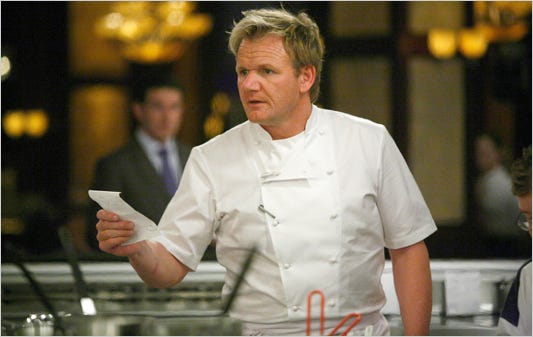How restaurant PR made Gordon Ramsay world famous
How Sauce Communications made Gordon Ramsay and his protégés famous

Jo Barnes founded Sauce Communications with Nicky Hancock in 2000 and helped usher in a new era of restaurant PR for the 21st century. One of their first clients was Gordon Ramsay. Barnes tells the story of how she helped him become the most famous chef on the planet (with contribu…
Keep reading with a 7-day free trial
Subscribe to Smashed to keep reading this post and get 7 days of free access to the full post archives.


